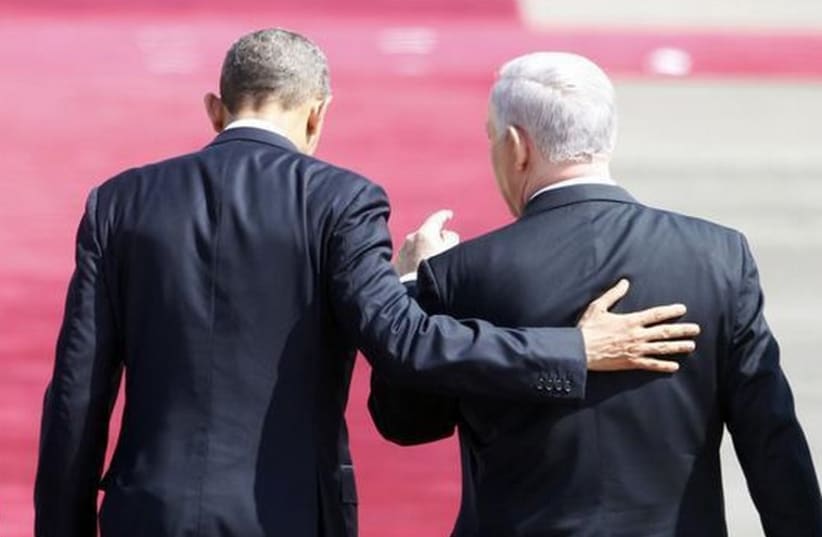See the latest opinion pieces on our page
With this in mind, former ambassador to the United States Michael Oren’s recent articles, interviews and book that sharply criticized President Obama, his Middle East policies and his motivations become even more irresponsible.They ignited a firestorm of controversy.Far worse, they created a distraction from dealing with these issues, erected an unnecessary obstacle to cooperation and exacerbated tensions between the two governments at precisely the time they most needed to be eased.Though he has not distanced himself from these attacks, Mr. Netanyahu will need to work closely with President Obama over the next 18 months to address these very complex issues.There’s no way around that.A second matter requiring discrete consultation between the two governments is in large measure an offshoot of the Iran nuclear talks. To gain support for a deal with Iran from the Persian Gulf states, most notably Saudi Arabia, which are as concerned as Israel about Iran possessing nuclear weapons, the US has offered to increase its military assistance to these countries. At the same time the US is supplying more advanced weapons to state and non-state actors in the region battling ISIS.These steps conflict, however, with a long–standing US policy of helping Israel maintain qualitative military superiority in the region. Accomplishing both foreign policy objectives simultaneously also requires quiet coordination between the Obama and Netanyahu governments.A third issue is the one that created the tension and distrust between the two leaders in the first place, as it did between previous US presidents and Israeli prime ministers: the Israeli-Palestinian conflict. President Obama, like US presidents before him, Democrat and Republican, recognizes that it is in America’s national interest to actively seek a two-state solution. In fact, from his first full day in office in January 2009, he sought to attain it, though without success. It is certainly legitimate to criticize the manner and tactics his administration employed, but personal attacks are not only unproductive, they are deplorable.Moreover, achieving a two-state solution is also in Israel’s national interest: It remains the only way to secure Israel’s future as a Jewish and democratic state. But a comprehensive agreement is nowhere on the horizon, and blame for that can be fairly apportioned among Obama, Netanyahu and Palestinian President Abbas. Nevertheless, creative ways must be found to preserve the two-state solution for a more propitious time and to create some tangible movement toward it.This, too, requires consultation and trust between the American and Israeli leaders.Finally, it is also critically important to preserve the US-Israel special relationship, especially now when Israel’s international isolation is deepening, and it needs US backing in international forums, where it is increasingly under attack.Thus, it’s imperative to discard distractions like those created by Oren. As we head into a critical period for the US-Israel relations, petty politicking and point-scoring must yield to private cooperation between the Obama and Netanyahu teams.It is time to focus on solutions: develop discrete, reliable back channels between the two governments; regain mutual trust, and quickly establish quiet exchanges to address these four immediate issues: preventing Iran from obtaining nuclear weapons, maintaining Israel’s qualitative military superiority, preserving the two-state solution and sustaining the special US-Israel relationship. Both countries will gain.David A. Halperin is executive director of Israel Policy Forum, a nonpartisan US organization that has advocated on behalf of lasting, negotiated Israeli-Palestinian peace since its founding in 1993.
These include: maintaining Israel’s military superiority in the region, preserving the two-state solution and safeguarding the special relationship between the US and Israel. All are in jeopardy.
